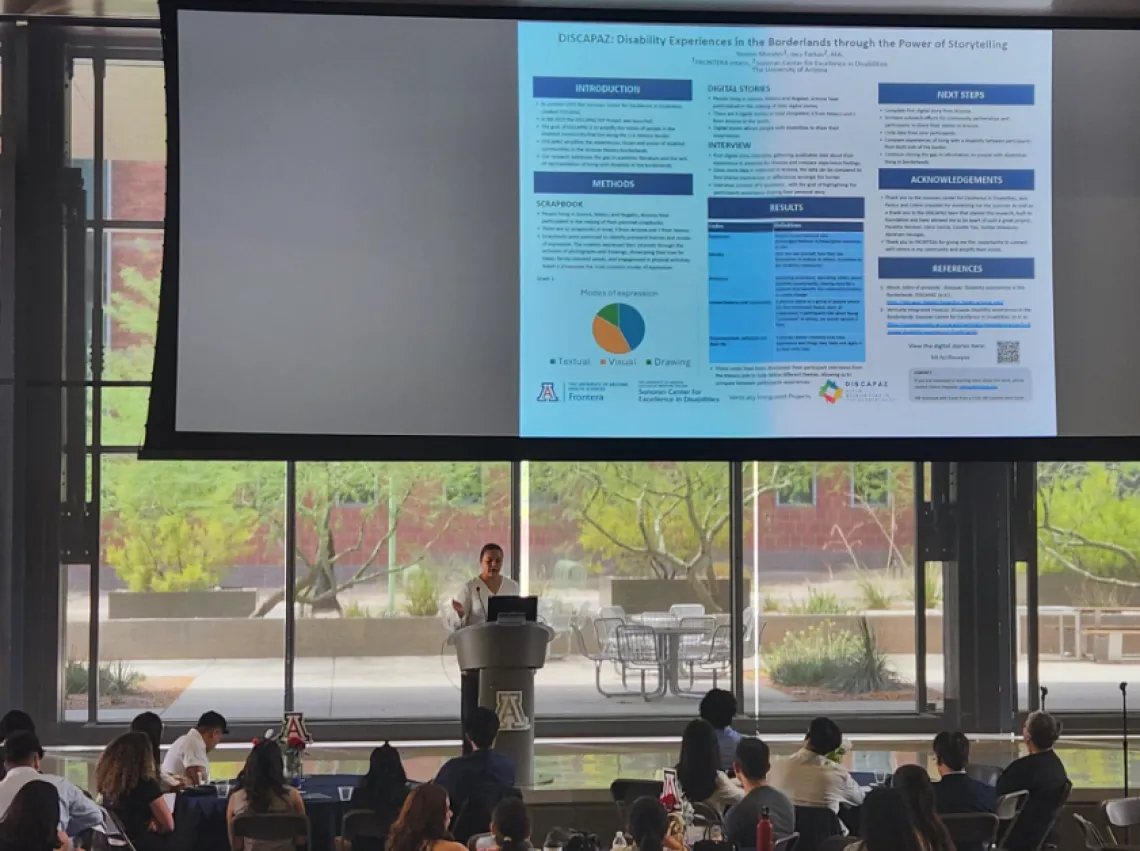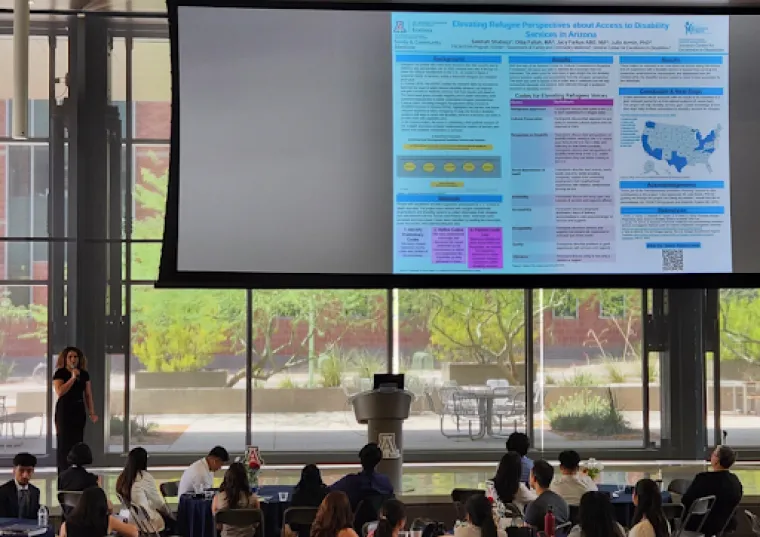Sonoran Center Partners with FRONTERA Internship Program to Provide Disability Research Experience to Students

This summer, the University of Arizona Health Sciences Office of Equity, Diversity and Inclusion included the Sonoran Center among its partner organizations for the FRONTERA Internship program. FRONTERA allows undergraduate U of A students to get hands-on clinical and research experience, with a focus on border communities and rural areas.
Two of the students that participated in the program, Yasmin Morales and Salehah Shabazz, worked directly with the Sonoran Center. Yasmin worked on the DISCAPAZ: Disability Experiences in the Borderlands project, a multimedia initiative focused on shining light on the experiences of people with disabilities living along the Arizona-Sonora border, while Salehah worked on the Elevating Refugee Perspectives project, focused on improving access to disability resources for refugees.
Yasmin is currently majoring in Care, Health, and Society with a minor in Spanish. Long-term, she is working to obtain a Doctorate in Physical Therapy.
“My goal is to help promote individuals’ independence in whatever capacity that may be,” Yasmin said.
“This summer I got to catch up on what the DISCAPAZ team does and then got to work on my first digital story with them!” Yasmin said of her time with FRONTERA. “I learned about the gap in literature representing people living with disabilities along the border as well as how to share their story and the value behind doing so. I will be able to not only use my experience working with DISCAPAZ to improve my own bias about people with disabilities, it will allow me to think more about inclusivity and to share these experiences with others that wouldn’t know.”

Salehah is majoring in Physiology and medical sciences with a minor in Anthropology.
“It was cool to see the qualitative types and approaches to research versus quantitative,” Salehah said. “You need to look at the people and how they live their lives and the experiences that they go through with the healthcare system. Not only are there different marginalized groups, like people with disabilities, but there's even further compartmentalization within those groups.”
“The main thing that I learned was the difference between equity and equality,” Salehah continued. “Equality is giving everyone the exact same care, but everyone has different problems, different needs, and different backgrounds. Equity is getting them exactly what they need.”
The Sonoran Center is proud to be a part of this unique opportunity, which offers a hands-on look at healthcare with a focus on meeting people where they are.
“My experience working with the Sonoran Center for Excellence in Disabilities was a true pleasure,” Yasmin said. “They were all so welcoming and helpful. They were ready to support my success throughout my summer internship and were very willing to fill me in on their goals and allow me to be a part of it.”
“We're hoping that we can continue to work with the FRONTERA program and hopefully continue to offer these opportunities to students next summer and the summer after that because I think a lot of students, especially who are thinking about going into health careers, when they think of research they're thinking of lab and clinical research,” explained Celina Urquidez, MPH, project lead for DISCAPAZ. “But most of what we do here at the Sonoran Center, the research that we do is more humanities based. You see it through a lens of who the person is and what it is that they need, rather than like looking at numbers and trying to figure out solutions without actually looking at the person. Taking the context of who people are, what their experiences are, and then using that to inform how you can go into a health career and be successful and help people, I think is just as important.”
